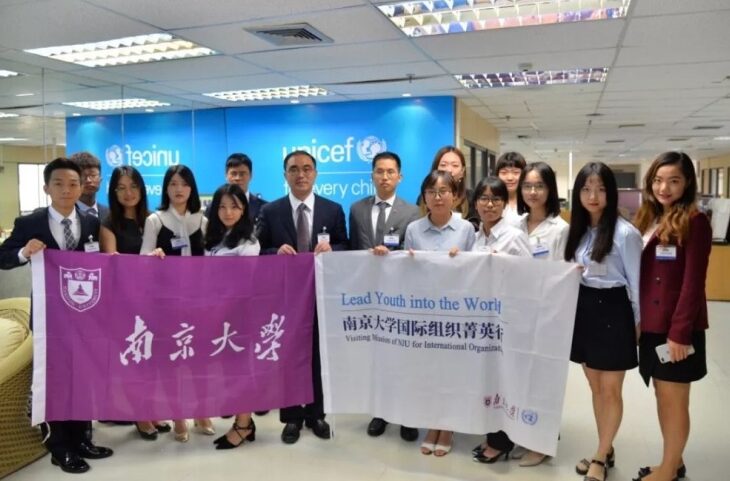Context: In 2020, there were 8.7 million new college graduates in China, and more than 0.8 million returned to China from studying abroad. Although competition for jobs is high domestically, China’s representation of international staff in international organizations, especially in senior positions, is relatively low. For example, China contributed 7.9 percent of the United Nations’ regular budget from 2016 to 2018, but the number of Chinese nationals working at the organization made up merely 1.1 percent of all staff in 2017. In order to encourage graduates to join international organizations and create more internship opportunities for students, the Chinese government has been implementing a special scholarship project for interns working at international organizations.
Implementation of programme/ initiative: In July 2014, the Chinese Scholarship Council signed a cooperation agreement on the establishment of internship programmes with UNESCO in Paris. Following this, the Council implemented the international organization’s scholarship project to reduce the cost burden of interns during the overseas internship period. This project aims to help students gain more experience and have better preparation for future work after they graduate. Interns have the choice of applying to internships through the Council, or independently. All that is required to apply for a scholarship is an offer of employment from an international organization. In 2020, the Council aimed to send 750 students to international organizations for internship positions. The scholarship covers international travel fees and basic living costs. Scholarships are given at 1,800 Euros, 2,400 USD or 2,500 Swiss Francs per month, and the funding period is 3–12 months. These factors vary based on the location and internship length. Furthermore, there is no obligation for recipients of the internship to return to China to work after completion of the internship.
Main challenges: Application processes to international organizations are generally quite lengthy. Because of this, and since they may have already found paid work or choose to pursue higher education, many students miss out on internship opportunities. The Scholarship Council assists international organizations in selecting and interviewing interns twice a year. If students apply for the internship independently, they will need to wait for longer periods for the Council to consider their applications. Unfortunately, COVID-19 has impacted the viability of these scholarships, as international travel has been restricted.
Results achieved: From January to August 2018, 74 students independently applied for and received scholarships. From January to April 2019, the number was up to 107. In 2020, 16 interns were working at UNHCR, 12 at the UNDP, and 20 at IFAD after applying through the Council. Many interns have noted that these internships have helped them to improve their professional skills, and many have even been offered permanent positions in the respective organization after the internships. In 2014, there were 893 Chinese nationals working for the United Nations. In 2019, this number had grown to 1,336 employees.
Moving Forward: Originally, the Council only reviewed independent scholarship applications once every three months, but it has since shifted to reviewing applications immediately to improve efficiency. The amount of scholarships given out is increasing year-by-year, and there are likely to be more positions available after the pandemic has died down. To allow employees and interns to share their experiences and suggestions on improving the domestic working environment, the Council also built an online platform – the International Organization Talent Information Service. Finally, the Scholarship project is funded by the government, so it will not pose financial burdens on participants.
Replicability: Due to globalization and other factors, the number of students migrating and studying overseas is increasing year-by-year. Many governments have scholarships for students to study abroad, but most of them are long-term programmes which require a period of obligatory service. Governments could implement short-term projects that do not require further obligatory service, lessening the funds required by students but allowing more of them to participate and gain valuable experience. Also, governments could work more closely with organizations to increase internship positions so that all parties can benefit.
Acknowledgement:
This good practice was kindly prepared by Ms. Juanying Xie
References :
https://www.csc.edu.cn/article/1765
https://unsceb.org/content/un-system-human-resources-statistics
http://www.mohrss.gov.cn/SYrlzyhshbzb/rdzt/gjzzrcfw/rz/
Project Details
Date: January 15, 2021
